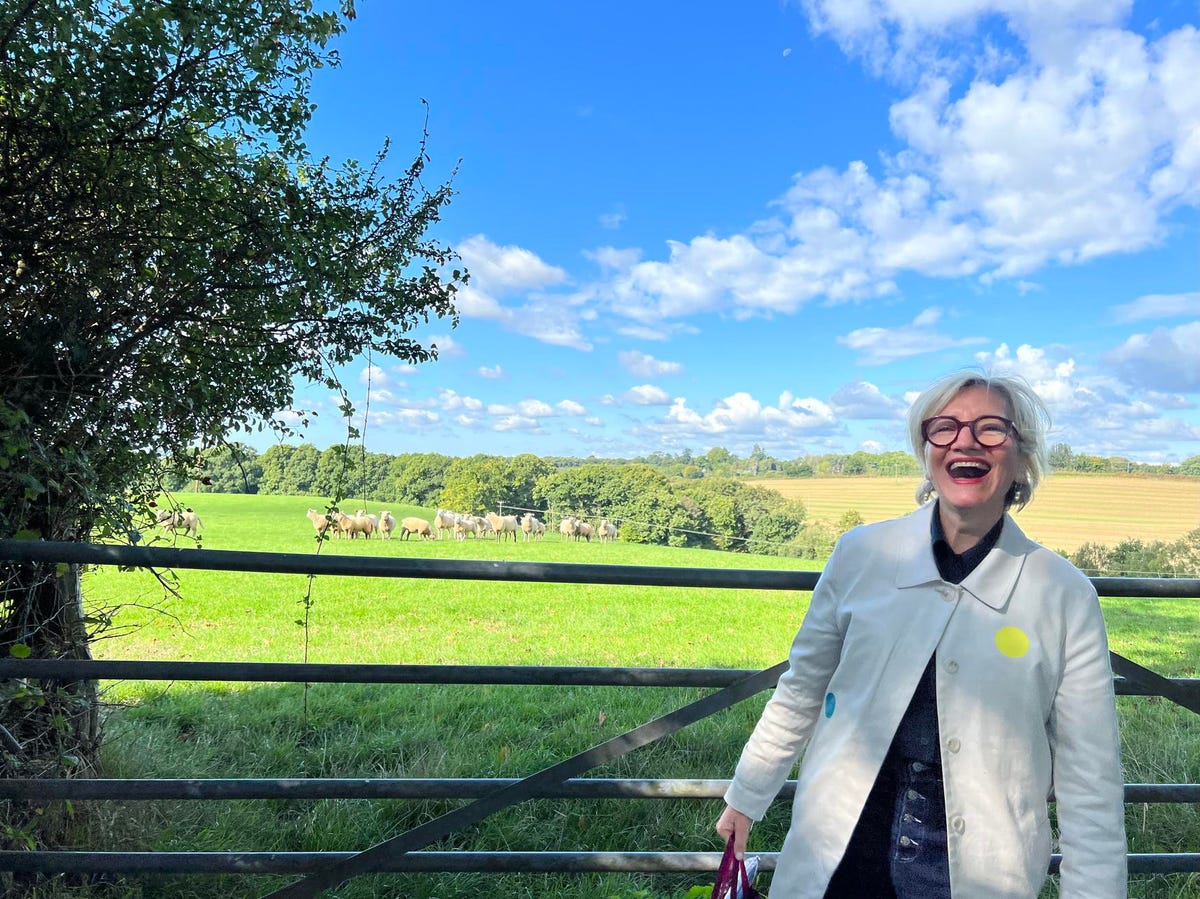School of Design students who will graduate this May recently had a unique opportunity to join celebrated designer and Pratt alumna Ayse Birsel online for an interactive Design the Future You Love master class. The workshop, which uses Birsel’s design-thinking process, Deconstruction:Reconstruction, to help people create manifestos and action plans for achieving personal and professional goals, was a gift from the School of Design.
Birsel guided the students through a series of creative exercises to imagine habits and ways of thinking that would be useful in their future endeavors. Throughout, Birsel shared stories from her decades of experience designing products for Fortune 500 companies. She said that it was important to apply the qualities of successful designers—optimism, empathy, open-mindedness, big-picture thinking, and curiosity—to all areas of life.
“If you design your life, then your future can have more coherence and better align with your values,” Birsel told the workshop. “Your life is your most important project, so why not do it creatively?”
In the workshop, students wrote about what their superpowers and kryptonite would be in the context of their careers, and then identified a hero for inspiration. Many spoke about relatives and teachers who achieved remarkable things, helped others, and acted in loving ways.
“Our heroes inspire us because they have the things we aspire to have,” she said. “What’s really important about your values is that they’re the foundation of your design.”
A personal manifesto and action plan were created by the students after responding to various questions. The documents detailed the first steps they would take toward their goals.
“Showing up is oftentimes 90% of the work, especially if you’re a designer and somewhat of an introvert,” Birsel said. “If you’re not doubting yourself, you can try new things and be more curious and more outgoing. Design is very much about habit building. If you can identify a habit you want to break or something you want to avoid, capture it here, and then afterwards you can educate yourself on how to do it.”
Students shared parts of their manifestos and action plans with the larger group, and common themes arose such as the desire for creative fulfillment, community impact, and professional independence. Birsel emphasized these are the foundations of a life well-lived.
Each student will be able to build upon their manifestos and action plans as they progress in their careers or postgraduate studies.
“Your life is a design process,” Birsel said. “Your project right now is that you’re graduating. Other projects that come up, some happen naturally, some are disruptive, some happen with a lot of joy, some of them less so, but they’re all part of who we are. As designers, we can turn the same process and creative tools we use to design products for others, inwards, to design our own life.”
